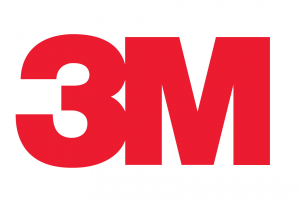On becoming the change - timeless messages for the New Year. Part 2 : Keeping anxiety in check
9.02.2017Company: Amcham
How well people keep their anxiety in check is informed by a variety of things – personality, attitudes, skill sets, but also neurochemical factors that we have no control over – just like gender (yes!). Proneness to anxiety is an area where it makes no sense to compare ourselves with others. Keeping track of our states, and acting early on perceived imbalances, is a much wiser option.
Anxiety is usually fear-related; while fear cannot prevent suffering, or death, it will prevent life. Speaking of life: Dieter Nuhr, a popular German comedian, said in a recent show that he was tired of nationalistic talk of making the respective people great again, which abounded in 2016 – because this type of rhetoric just always ended in war. He went on: “But life isn’t great – it’s actually quite small: you are born, you live, you procreate, and then you die. Truly accepting that… that’s great!”
What does make our experience of life great is noticing and celebrating its special moments. This means being on the lookout for them, sharing them, and encouraging those around you to do the same. In a nutshell, it’s about re-wiring our anxiety-driven reaction to what we experience, to one of excitement – as in “look what I found!”. It was our discoveries that made our childhood so precious! Today, we share “news”: other people’s stories (or catastrophes) that have little to do with our direct experience of life. When we were children, we were able to become so enraptured with our own little world that we’d effortlessly filter out instructions or educational commentary, and focus solely on “what was truly important”J. Mindfulness practices today remind us to live in the moment, but we’ve long since become much more detached, worldlier, and also settled in our opinions.
Speaking of opinions: one of mine is that looking out to others and trying to make everything that is uncertain certain is the road to hell. Brené Brown, a researcher into human connectedness, shares very worthy messages in her timeless 2010 TEDx talk The Power of Vulnerability: “Religion has gone from a belief in faith and mystery to certainty. ‘I’m right, you’re wrong. Shut up.’ The more afraid we are, the more vulnerable we are, the more afraid we are. This is what politics looks like today. There is no discourse any more. There is no conversation. There’s just blame. You know how blame is described in my research? A way to discharge pain and discomfort. We perfect.”
Brené spent years refining her message of “I am imperfect, and I am enough”. This is not the “enough” as in, “I don’t need to change and in fact am no longer curious about my impact on others” (which is a very insecure stance), but “since I am enough in my own eyes, I have permission to be imperfect, so I can keep learning.” Secure personalities accept that they are imperfect and wired for struggle, and believe they are worthy of good things. There is probably a considerable overlap with those who withstand temptations and immoral propositions, while others are having a hard time resisting promises of power, status, and influence. Even though they may come at a high price, their real cost to the human being (much like credit card interest) is often discovered only in hindsight… Disillusionment triggers bitter moments, of which I am sometimes a live witness to.
An invaluable trait highly effective people share is the ability to focus on the things they can change, and to limit their exposure to others – at least until they have a mandate to tackle those, as well. In fact, people often work with me to do precisely that: get that mandate, i.e. become a trusted advisor. By extension, this is a hugely important task for anyone, and perhaps most of all around young people: we no longer have “all the answers”, not even all the questions, but we can all do, and teach, some little things to shape our immediate surroundings – like I mentioned in my last post, improving the communication patterns we engage in.
One highly effective communication technique is listening for strengths – focusing on your own strengths and on those of the people around you, and thus encouraging them to become the best version of themselves. We all sometimes need to hear what others appreciate about us – in the workplace, in the family, in our circle of friends. Try and see for yourself! Spending time to actually enjoy and develop your strengths is the single most important factor to leading a happier life. Spending time on a shared strength is even more effective in terms of increasing your well-being.
I know some families that do a lot right; some are my generation, some almost my parents’ generation. They all acknowledged their strengths as well as those of their children, and spent time developing them together. Imagine finding something all parties are curious to learn about, something so rich that everyone can be interested in a different aspect, and then share their findings. And now compare that to educational trips to what Mom and Dad think the kids should know about… That’s just well-intentioned nudging; very likely, kids will see straight through that anyway, and will have to be coaxed to even stay the course… A perfect example of content that can be enjoyed with the whole family, because it is rich enough for everyone to pick a favourite thought, is Ben Zander’s talk Giving Yourself an A – one of the visual resources I announced in my last post. One thought I’d like you to notice in our present context pertains to his perspective on downward-spiral thinking – and how to keep it in check.
Benjamin Zander leads the way to more examples of people who are so fascinated by learning that they don’t need “nudging”, or external motivation. Artists devote unending hours not necessarily to becoming better and better, but to becoming more and more “one” with the subject of their passion. But even they, in order to be so open to learning forever, need to free themselves from the inner voice that focuses on mistakes, challenges, or any variation of not being good enough. I am convinced that only students of the performing arts suffer from that… :)! Ben’s highly instructive as well as very entertaining talk is full of valuable cues around how to create (or “invent”, as he says) a world that makes your eyes shine. Extremely worth your while, I would think!
To close, I’d like to mention another favourite – the wisdom of 25-year old pianist extraordinaire Daniil Trifonov. He recently said in a TV interview that we cannot take unlimited amounts of energy from ourselves, and that we have to find other sources. “For me, this source is the music itself. What helps, I believe, is losing myself in the music. As you work on a piece you associate yourself with everything that happens in the piece; it’s not that you are trying to make the piece sound like you want it to be, you yourself have to be what the piece wants you to be.” If music isn’t your thing, try Carl Sagan’s My parents were not scientists. They knew almost nothing about science. But in introducing me simultaneously to skepticism and to wonder, they taught me the two uneasily cohabiting modes of thought that are central to the scientific method.
Nothing can replace the positive energy we generate ourselves, whatever our concrete source of inspiration may be. Awe, wonder and curiosity are definitely real boosters of wellbeing. And gratitude for being alive at this amazing time, living with unprecedented choice, freedom, and abundance could also be a good start…!
If you only take away one message from this: at the end of the day, it boils down to how well we recover after we, or the beliefs we hold dear, take a blow. To do this, we need to tap into resources like the ones discussed here, as well as a personal support network truly deserving of that name.
I wish you many exciting discoveries of resources within and around you that you can access if you’ll ever need to quickly regain your balance, creativity, judgment, and energy.
Have a “great” year,
Annette
Tags: Business Development | Education |






